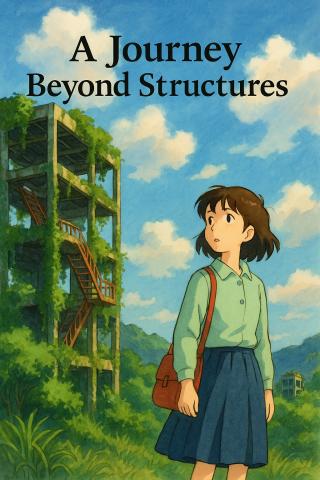
A Journey Beyond Structures
On 6th March, I was waiting for my turn to face the evaluation committee. Many colleagues were waiting outside, and we had a great conversation. Some of us were tense, others were curious to learn from those who had already faced the board. There were candidates with several decades of experience, yet they were ready to face the evaluation. There was one thing in common—we were all vulnerable. Vulnerability changes us from within. And when I reflect on my journey as a Mentor Teacher, it’s essentially a journey of change.
The program has transformed me—as a teacher, a person, a learner, and a mentor. The program took me out of a safe, secure, and enclosed space and pushed me into an open, dynamic, and competitive environment—quite the opposite of what a government job is typically imagined to be. All teachers who chose to become Mentors also chose this nature of the program. They had no option but to learn to navigate a space that felt unfamiliar.
One of the leading questions that most Mentors faced was: What do we do tomorrow?
Coming from schools and being conditioned to work in a predetermined schedule, the absence of structure was troubling. But it was precisely here that the agency of a teacher emerged. As Mentors, we could often decide where to go and what to do. Nowhere else in the world are teachers trusted with such autonomy.
The idea of the Mentor Teacher was someone who thinks and innovates, not just someone who executes. And that required flexibility. After the initial hurdles, many of us began to grow through this dynamic schedule.
What does “open” mean here?
By "open," I mean that Mentors had a sea of opportunities to explore. Unlike in schools, they were not bound to the subjects they taught. They had chances to work across different levels of the system. Imagine it like a lift or staircase that opens to different floors. Mentors could teach, mentor, and also engage with district and state-level officials.
No program has ever been imagined like this. Generally, in bureaucratic structures, roles and positions are fixed, and there is no fluidity. The fluidity in the role of the Mentor also attracted the harshest criticism. In a bureaucratic setup, a person without a clearly defined role or designation is often seen as someone who doesn't work—“Ghoomte rehte hain.”
This perception is the natural outcome of the system’s structure, not necessarily the opinion of individuals. A few could see beyond this conditioning and appreciated the value the role brought.
The “competitive space.”
We all felt it—some managed to navigate it, some couldn’t—but we all learned from it. We all feared the insecurity regarding our place in the program and how long it would continue. The months from March to June used to be particularly brutal, unless a new circular came extending the term for another year. This insecurity was—and still is—of a corporate kind. But the way the program is designed, this is its inherent feature. It cannot bring long-term security.
I won’t deny that it's stressful. But think about it—when was the last time, as teachers, we faced any kind of evaluation? We don’t remember such events. But Mentors faced multi-layered evaluations. It made us vulnerable, yes—but there’s beauty in that vulnerability. Because in vulnerability lie the opportunities for growth. Every time we faced it, we grew as a person. We learned to manage our emotions, worked on communication, built stronger interpersonal relationships and so on.
Beyond Definition
Since the Mentor Teacher Program did not come with a pre-defined definition of what “Mentoring” is, we continued to construct its meaning as we went.
Quite late, I realized that Mentoring is about inspiring the people around you. I often tell my colleagues in school—if my presence communicates that reading, writing, and teaching are joyful and meaningful things, then I am successful as a Mentor. I’ve realized that Mentoring is less about what we do to others, and more about what we do to ourselves. This requires deep, ongoing work on the self. The more you engage with educational and other forms of literature, the more you strive for your own learning, the better a Mentor you become. When I share with teachers what I am learning—rather than what they need to learn—it inspires them more.
There’s still so much to write. I’ve been writing from time to time, and I plan to write more—about the world’s only program that truly trusted teachers and called them Mentors. Because the journey we undertook as Mentors will continue, and I’m reminded of a popular saying: once a Mentor, always a Mentor. I’m proud to be a member of this community of over 500 Mentor Teachers. I believe that in the future, many of us will reflect, and there will be significant literature around this program—capturing the impact it created, the leadership it developed, and the personalities it shaped.
- Log in to post comments
